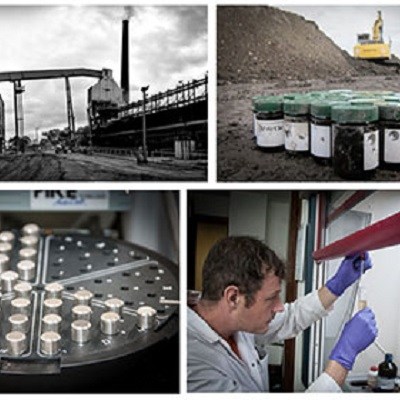Machine learning models of organic soil contaminant bioavailability for the sustainable redevelopment of post-industrial brownfields

This CASE PhD studentship will use a combination of organic geochemistry and data-driven modelling to elucidate the factors responsible for the skin absorption of hazardous organic chemicals in contaminated soils. With increasing pressure to build on brownfield sites there is an urgent need to fully understand the factors responsible for the release of organic contaminants in soil to the skin. Your research will be supervised by a team of globally acknowledged leaders from the British Geological Survey (Dr Christopher Vane, Dr Darren Beriro and Dr Paul Nathanail), University of Nottingham (Dr. Matthew Jones) and WSP (Prof. Russell Thomas).
You will create a comprehensive dataset of in vitro dermal bioavailability and physico-chemical properties for a range of real-world contaminated soils and interrogate the data using predictive numerical modelling-machine learning methods to evaluate the relationship between organic and inorganic interactions. The results generated from this PhD will be used to explain the factors responsible for the release of the organic chemicals form the soil and the subsequent skin absorption for used in risk-based redevelopment of brownfield land. The project builds on the past experience of the academic and industrial supervisors in human health risk assessment, geochemistry and machine learning for post-industrial brownfield sites. The project will address a current industry need and includes significant CASE funding from National Grid. You will investigate some of the key controls on the release of these contaminants from soil by completing a placement in Australia of up to 6 months with a world leading research laboratory at the University of Newcastle, NSW under the supervision of Prof. Ravi Naidu
Your research outputs will include key lines of evidence to predict bioavailability of key contaminants required for site remediation and an improved understanding geochemical process controls. The project combines cutting edge science and human health risk assessment practice in the UK and rest of the world. The applied nature of the PhD means that this research project will provide you with an excellent chance of post-study employment in academia, government or the private sector.
The applicant will hold a minimum of a UK Honours Degree at 2:1 level in subjects such as Chemistry, Environmental Geoscience or Natural Sciences. A post-graduate qualification is desirable as is some industrial experience. A strong foundation in chemistry would be advantageous. Competition will be strong so the highest calibre candidates are encouraged to apply.
For further details please contact Dr Christopher Vane (chv@bgs.ac.uk) or Dr Daren Beriro (darrenb@bgs.ac.uk).
